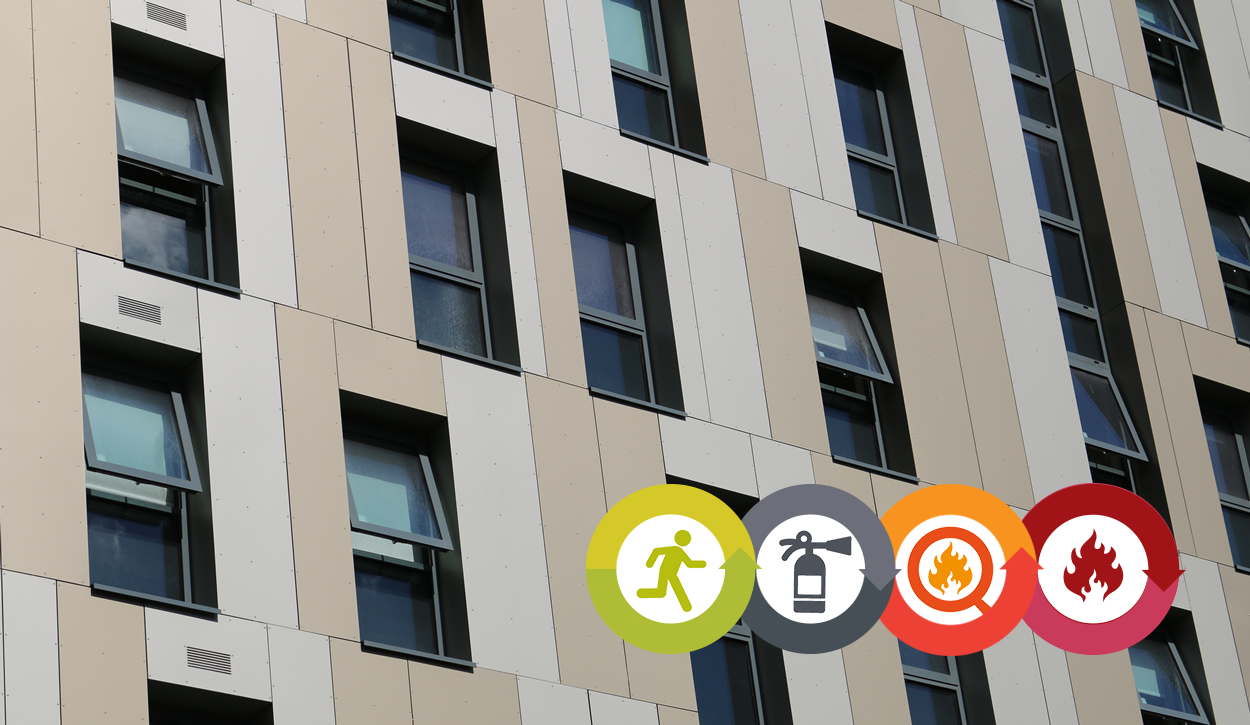Scotland: First High-Rise with Dangerous Cladding Replaced Post-Grenfell
Aurora Apartments in Aberdeen has set a new standard for fire safety as the first high-rise building in Scotland to replace dangerous cladding under a government scheme initiated after the Grenfell tragedy. Learn about the extensive efforts to protect residents and ensure compliance with strict fire regulations.

The Aurora Apartments have become the first high-rise in Scotland to remove and replace hazardous cladding under a government pilot scheme launched after the Grenfell Tower fire. This milestone marks a significant step forward in improving fire safety in residential buildings across the country.
The nine-storey building underwent extensive renovations to meet the stringent fire regulations established post-Grenfell. The project involved replacing combustible wall cladding and insulation materials with non-combustible alternatives, significantly enhancing the building’s fire safety.
Identified as a ‘high priority’ for cladding remediation under the Single Building Assessment (SBA) programme, the Aurora Apartments’ project cost £600,000. It was funded by the Scottish Government and managed by Diamond & Company (Scotland) Ltd Chartered Building Surveyors and Chartered Fire Engineers.
Phil Diamond, Managing Director of Diamond & Company, commented: “The Grenfell fire exposed systemic failures in cladding installation across the UK. The completion of the work on Aurora Apartments provides a blueprint for making similar high-rise buildings safer. Residents can now sleep soundly knowing their building is much safer. The non-combustible cladding used prevents fire from spreading over the building’s exterior.”
The project faced challenges, including the removal of the timber support frame and other combustible materials. Advanced technology, such as drones with laser scanning, was used to survey the building and plan the necessary work.
Housing Minister Paul McLennan highlighted the importance of the project, stating: “This is a significant moment for owners and residents. The Scottish Government’s £600,000 funding for this complex and innovative work is crucial. The remedial work builds on the Cladding Remediation Act, supporting our efforts to make buildings safer across Scotland.”
The legislation banning combustible cladding on new high-rise residential and high-risk buildings above 11 meters (36 feet) was enacted by the Scottish Parliament in April 2022. The regulations, effective from June 1, 2022, also apply to recladding works on existing buildings, such as Aurora Apartments.
Jacqueline Hacking, Managing Director of the Arbroath-based company that conducted the remedial work, remarked: “This complex job involved removing external cladding and replacing internal materials. We stripped the building to ensure all combustible materials were removed, including replacing timber decking on balconies with fire-rated aluminium decking. Thanks to the residents’ cooperation, the project was successfully completed, and the building now meets the new fire regulations.”
Trinity Factors acted on behalf of the residents after the developer ceased trading. Paula Roberts, Aberdeen branch manager, expressed relief and gratitude for the government’s pilot program: “Residents were concerned when the survey revealed extensive combustible materials. The developer’s cessation of trading added complications, so it was a relief when the government included Aurora Apartments in the pilot program, providing certainty and funding for the necessary work.” The successful project at Aurora Apartments sets a precedent for future cladding remediation across Scotland and the UK, ensuring a safer living environment for residents in high-rise buildings.
#FireAlarms #FireRiskAssessment #FireSafetyEquipment #FireAlarmMaintenance #AccessControl #CCTV

